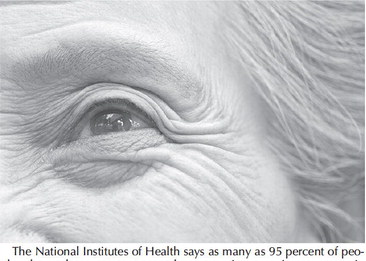What to expect from cataract surgery


Cataracts are a clouding of the lens of the eye that can cause blurry vision and increase glare from lights. The Mayo Clinic indicates that cataracts can make it difficult for people to carry out their normal activities or interfere with treatment of other eye problems. In such instances, doctors may recommend cataract surgery.
The American Academy of Ophthalmology says cataract surgery involves removing the lens of the eye when it’s cloudy. A cloudy lens can make people feel like they are looking through a foggy or dusty car windshield. That’s because a cataract-plagued lens cannot refract light rays effectively. Many images appear hazy and blurry, or less colorful. Surgery is the only way to effectively treat cataracts. The cloudy lens is replaced with an artificial clear lens called an intraocular lens, or IOL, says the AAO.
Cataract surgeries have become routine and most operations are successful. The National Institutes of Health says as many as 95 percent of people who undergo cataract procedures experience an improvement in the sharpness of their vision.
Replacement of the damaged lens is the goal, but there are different types of cataract surgery that vary based on the size of the incision and the technology used to remove the cataract. Phacoemulsification is one popular procedure during which a surgeon will make a two- to three-millimeter-long incision in the front of the eye for an ultrasonic probe. The probe utilizes vibration to break up the cataract and removes the fragments with suction. A foldable lens is then inserted through the incision. Here are some things to expect from cataract surgery.
• A week or more before the surgery an ultrasound test will measure the size and shape of the eye. This helps to determine which type of IOL will later be inserted and become a permanent part of the eye.
• IOLs can come with different features, such as blocking ultraviolet light or being monofocal or bifocal in nature. Others correct astigmatism. An eye doctor will discuss which type of lens is best.
• Medicated eye drops may be prescribed before surgery to reduce the risk for eye infections.
• Patients may need to stop taking certain medications prior to surgery, particularly if they can increase bleeding risk. Also, doctors may advise patients to avoid solid food several hours before surgery and avoid drinking alcohol for a day prior.
• You will be awake for the procedure, but your eye will be numbed and you won’t be able to see what the surgeon is doing. Some doctors provide a sedative to help with relaxation.
• Typically the surgery is an out-patient procedure, meaning you’ll be able to return home the same day. However, you will not be able to drive, so arrange for transportation.
• Medicated eye drops may be prescribed, and recovery may include limiting activities for a few days. Any eye discomfort should disappear after a couple of days. Eye patches and protective sunglasses also may be recommended.
Cataract surgery can give people a new lease on life through improved visual clarity. The procedure is relatively easy and successful for the majority of people who undergo it.




